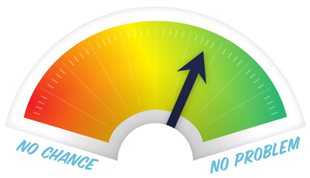Could Olivia Chow really use the land transfer tax to make city taxes more progressive?
THE IDEA
Back in 2010, Rob Ford promised to scrap Toronto’s land transfer tax (LTT) and won the mayoralty. Four years later, the David Miller-era tax is still intact, and Olivia Chow is trying to bolster her campaign with a pledge to do the opposite. In early September, Chow promised to raise $20 million annually by making the LTT more expensive for the city’s wealthiest homebuyers.
In Toronto, the only Canadian city that has both a municipal and a provincial LTT, buyers are required to pay a one-time fee of 0.5 per cent on the first $55,000 of a property purchase, one per cent on the next $55,000 to $400,000, and two per cent on anything beyond $400,000. (The brackets stack on top of one another, so someone who bought a $450,000 home would pay the two per cent rate only on the last $50,000 of the purchase.) Chow’s wants to increase the tax—meaning, all three brackets—by a percentage point whenever a property sells for more $2 million. “We need to find ways to make city revenue sources more progressive,” her press release says. “One way we can do that is by changing the land transfer tax to better reflect an ability to pay.”
 WOULD IT WORK?
WOULD IT WORK?
First, Chow would need to get the proposal through council, which she might be able to do. If the past four years are any indication, most city councillors are LTT fans. Efforts to kill or scale back the tax have been met with opposition, likely because it rakes in a much-needed $350 million (or so) for the city every year. And a one per cent hike could indeed add a great deal to that total. Last year, roughly $2 billion in real estate sales would have been subject to the new rates.
But would the increase actually make municipal taxes more progressive? That’s where things get tricky. Chow’s scheme would ostensibly tax buyers based on their ability to pay, assuming property values reflect the wealth of the people buying them. So, yes, the tax would be progressive—but, because the LTT only taxes buyers, that isn’t to say the entirety of municipal taxes would be.
The most obvious way for the city to make its tax system more progressive would be for it to base the whole thing on income, rather than on property, but that’s not currently possible; Toronto doesn’t have the legal authority to levy income taxes. For that reason, it’s stuck with things like the LTT, and not everyone agrees that the LTT is fair. “The land transfer tax is punitive for people who want to live in Toronto,” says Toronto real estate lawyer Bob Aaron. “I don’t see why we should be targeting one select subset of homebuyers.” Much of the real estate community agrees with Aaron that the LTT’s arbitrary taxation of buyers discourages people from purchasing property in Toronto, resulting in reduced economic activity and an exodus to the 905.
The tax remains popular with policymakers, though, primarily because it gives the city a direct way of capturing some of the value of Toronto’s real estate boom, which strains city services by luring new residents. Increasing the LTT on high-end home sales, then, would indirectly achieve Chow’s stated aim—taxing the rich, but not, generally, the poor—but it could also have unpredictable consequences for the market as a whole. It’s difficult to say what the outcome would be, though it’s hard to imagine 20 or 30 thousand dollars in extra taxes deterring someone from making a multi-million-dollar home purchase.
If not through the LTT, how could the city make real estate taxes more progressive? Aaron, for one, recommends gradually phasing out the LTT while phasing in property-tax increases, which he says would fix some of the problems created by the LTT without taking any money away from the city. “If we spread it out over a much larger tax base,” he says, “then the pain of the increase will be minimal if any.”
Unlike the LTT, however, property tax rates aren’t bracketed, and, because they’re levied annually and based on shifting property values, they don’t necessarily reflect someone’s ability to pay. Chow’s idea might not make municipal taxes more progressive as a whole, but, barring the introduction of truly progressive municipal taxes (a change that would likely require an amendment to the City of Toronto Act), it might be the best way to achieve her goal. Of course, making the LTT more progressive is not likely to make it any less divisive.
How do other 2014 mayoral candidates’ ideas measure up? Click here to find out.





